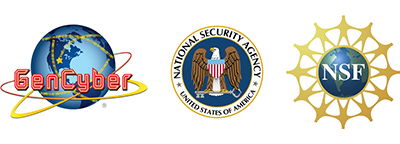
 By Karen S. Johnson, ICC Communications Director
By Karen S. Johnson, ICC Communications Director
We live in a world where pretty much everything and everybody – individuals, companies, governments, critical infrastructure – are increasingly dependent on connected systems, networks and devices. And, as newspaper headlines reveal, those systems may be insecure and vulnerable to hackers.
“Nowadays, everybody is using computers, and more and more things are connected. That provides convenience, flexibility, a lot of great things, but it also opens the doors for hackers,” says Yu Cai, associate professor and program chair for the Computer Network and System Administration program at Michigan Technological University.
“The world has increasingly become a combination of the physical world and the cyber world,” Cai adds. “That’s why cybersecurity is important, because you want to protect yourself. As human beings, we evolved over thousands of years to take care of our security in the physical world. But in the cyber world, many don’t have a very good idea of how to protect themselves.”
Cai is principal investigator on two grant awards, each for about $85K, which are making possible two free, non-residential, week-long GenCyber summer camps on Michigan Tech’s campus. The first camp, for middle school and high school students, is the week of June 17. The second camp, for K-12 STEM teachers, is the week of August 12. Both camps and all learning materials are offered at no cost to camp participants. Each participant will receive a Raspberry Pi minicomputer. Breakfast and lunch are provided. For enrollment information, visit mtu.edu/gencyber.
Funded jointly by the National Security Agency (NSA) and the National Science Foundation (NSF), the goals of the nationwide GenCyber program are to increase interest in cybersecurity careers and diversity in the national cybersecurity workforce, help students understand correct and safe on-line behavior and how they can be good digital citizens, and improve teaching methods for delivery of cybersecurity content in K-12 curricula.
“This is part of our picture to make Michigan Tech a leader in cybersecurity research and education,” Cai says of this summer’s GenCyber camps. “We have other cybersecurity curriculum development grants that focus on college education, now we want to outreach to K through 12.”
In both camp sessions, participants will explore the world of cybersecurity through real-world case studies, hands-on learning activities and games, interactive lectures, career exploration, and field trips. Covered topics include safe online behavior, cyber ethics, fundamental computer and network knowledge, and cybersecurity career options and educational opportunities.
“We’ll also cover common vulnerabilities and weaknesses of computer systems, such as how hackers get into the systems, and how systems can be strengthened to defeat hackers against the hundreds of vulnerabilities,” Cai adds.
Tim Van Wagner, a lecturer at Michigan Tech and a co-PI on the grants, is the lead teacher for the camps. Cai and his other co-PIs—associate professor Guy Hembroff and assistant professor Bo Chen—will also present learning modules and assist with the camps.
K-12 pedagogical expertise in curriculum development was provided by Copper Country Intermediate School District (CCISD) staff members Emily Gochis, Director of the Region 16 MiSTEM Network, and Steve Kass, Educational Technologist.
“Steve and Emily provided a lot of input and suggestions regarding the camp curriculum and advised us in the best practices for teaching high school students,” Cai says, adding that they are also helping to promote the camps in local public schools.
Driving the curriculum are four principles: Learning by Storytelling, Learning by Doing, Learning by Gaming, and Learning by Teaching. Cai and his team will be assessing the effectiveness of these principles using several methods. The resulting research will be shared with the GenCyber program and the public.
The two grants are titled, “Innovative GenCyber Learning Experience for K-12 Teachers Through Storytelling + Teaching + Gaming + Doing” and “Innovative GenCyber Learning Experience for High School Students Through Storytelling + Teaching + Gaming + Doing.”